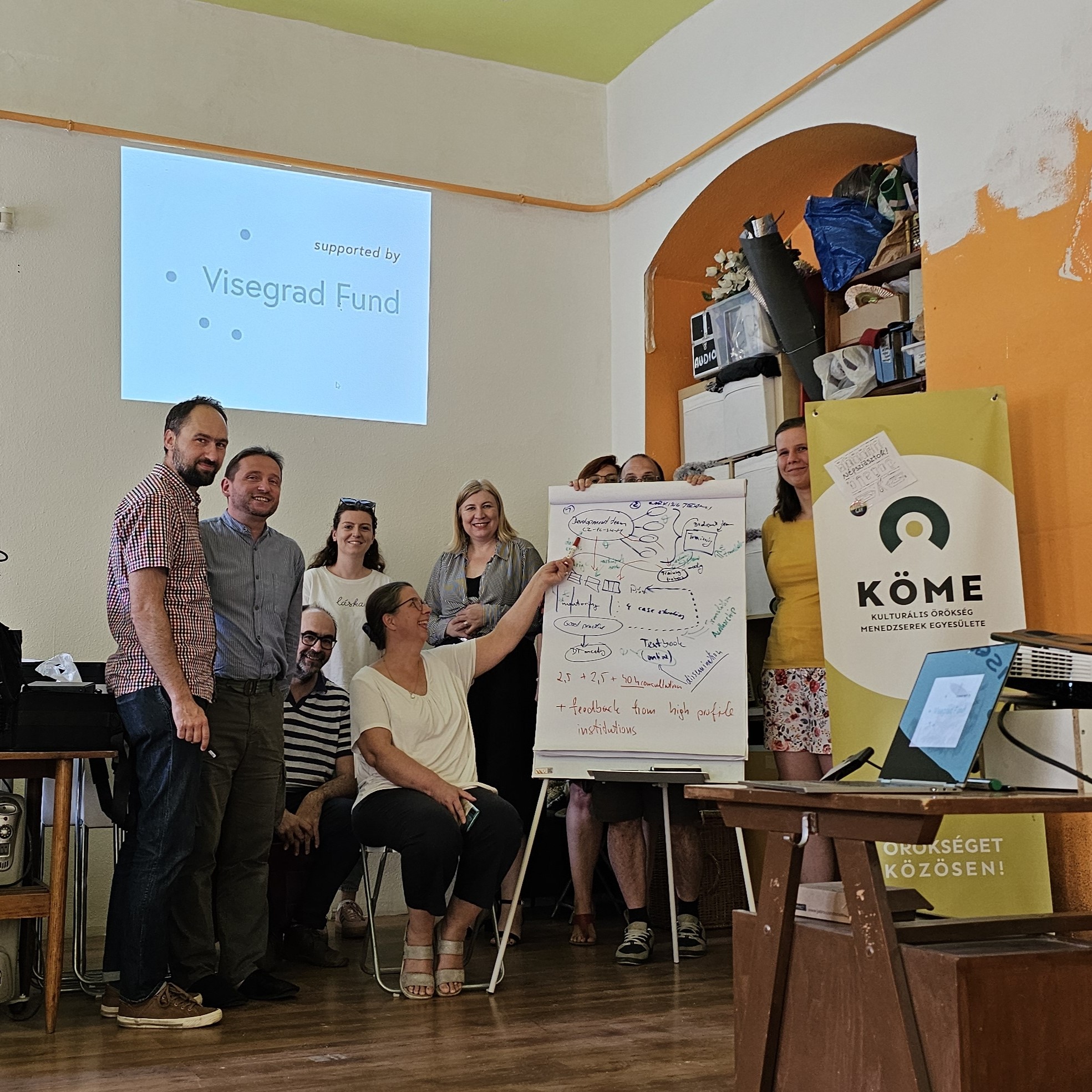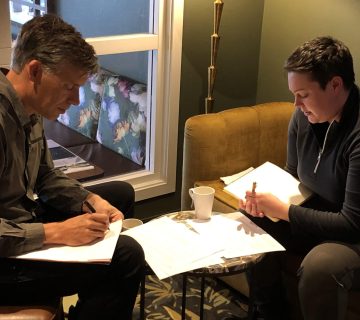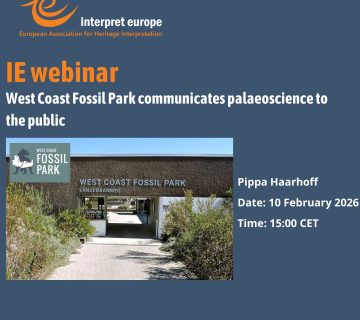The third round of projects promoting regional cooperations among the Visegrad countries has come to an end.
While Interpret Europe offers invaluable continent-wide opportunities for cooperation and learning for professionals in heritage interpretation, regional cooperations present somewhat different landscapes for more specific needs and interests, with opportunities for learning from each other and experimenting.
The Interpret Visegrad initiative (for the Visegrad countries of Czech Republic, Hungary, Poland and Slovakia) has been doing exactly that for the past six years and has just finished its third round. After the first two rounds of running certified Interpret Europe courses, and increasing the number of IE Certified Interpretive Trainers (CIT), this round was more about experimentation. Learning from the participants’ feedback on the IE training courses – which focussed on meeting some difficulties in finding local organising partners, or recruiting participants for the 40-hour format of the courses and the level of commitment it means for organisations delegating participants – there seemed to be a gap to be filled.
It is partly due to the fact that heritage interpretation, as understood internationally and within Interpret Europe, is not an established notion in Central and Eastern European countries. Advocating requires more effort, and flexible approaches. Hence the partners aimed for shorter formats and possibly lower thresholds. Six certified interpretive trainers from the IE network were involved in developing new training offers and workshops, which can be used both as teasers for the certified IE courses, and even as practice opportunities for former trainees, as they fully build on the principles of heritage interpretation. One- and two-day training and workshops have been developed with close cooperation of pairs of the Visegrad countries.
The results are:
Małopolski Instytut Kultury (MIK, PL) and Kulturális Örökség Menedzserek Egyesülete (KÖME, HU) have developed and tested two one-day events on interpretive writing. One is about the use of plain language, and the other is about enhancing interactivity in written texts.
MIK (PL) and Ústav pro interpretaci mísniho dědictvi ČR (UIMID, CZ) have developed and tested a two-day training offer on interpretive planning.
UIMID (CZ) developed and tested a two-day training event on live interpretation, also cooperating with Croatian colleagues. In fact, this effort contributed directly to the efforts of Interpret Europe in this same topic, creating even more synergies.
KÖME (HU) and Občianske združenie Hrad Uhrovec (SK) also developed and tested a one-day workshop on interpretive guiding, focusing on strengthening involvement of participants.
The Slovakian partner facilitated the participation of Slovakian professionals in these trainings and workshops. The project also resulted in new Certified Interpretive Guides (CIG) in Slovakia, and one new Certified Interpretive Trainer (CIT), as well as hopefully one more in the pipeline.
The project has further strengthened this lively professional partnership, and has also reached out to nearly 100 professionals in the four Visegrad countries as active participants. The closing event and partner meeting took place on 28-30 May 2024 – this project was evaluated and the results shared, but also new plans were formed for the future. So watch this space for more news on this successful initiative.
Zsuzsa Tolnay is a freelancer engaged in heritage interpretation and World Heritage. She is an IE CIG, CIW and CIT, based in Hungary. She can be reached at: tolnayzs@gmail.com
To cite this article: Tolnay, Zsuzsa (2024) ‘Interpret Visegrad initiative – Regional success’ in Interpret Europe Newsletter 2-2024, pg.7.
Available online: https://interpret-europe.net/wp-content/uploads/2024/07/PDF-Newsletter-2024_2.pdf




